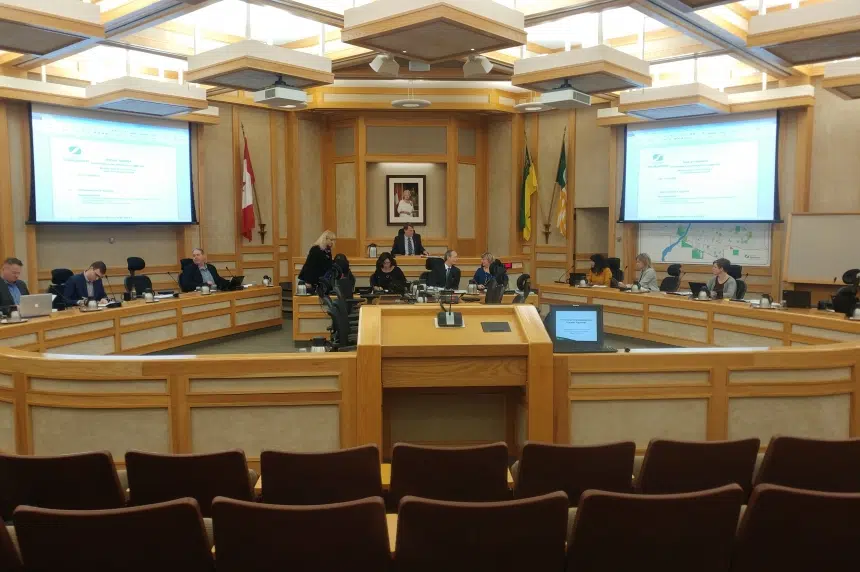It was a confusing afternoon for Saskatoon City Council Monday, but a solution to handle the provincial budget fallout in the short-term may be just around the corner.
The governance and priorities committee, which consists of the mayor and all 10 councillors, forwarded a slew of recommendations that aimed to keep property tax increases to a minimum while making up for the $9 million funding gap left by the province this year.
The recommendations include eliminating inflationary raises for all city staff, essentially freezing wages, and raising parking ticket fees from $20 to $30.
“We’re trying to mitigate the impacts and to keep our services going,” Mayor Charlie Clark said. “If we’re going to climb out of this financial challenge we need to keep attracting talent and investment to our city. Providing quality services is key to that.”
The committee also recommended deferring $1.1 million of the snow and ice removal levy, to end $35,000 in payments to the Yellowhead Highway Association and to reduce the fuel and energy management budget by $750,000.
TAXES LOWER THAN FIRST THOUGHT
All the savings and revenue generation combined left taxpayers with a 2.55 per cent increase in property taxes, translating to a $43.80 hike for the average homeowner with a property valued at $325,000.
The tax increase is slightly higher than it was after a decision in March to adjust the business tax ratio, but lower than what was approved in December.
City administration officials had their calculators out throughout the discussion Monday, crunching numbers to keep councillors up to speed on how they had changed the tax rate.
“It’s confusing,” Clark said of all the changes. “But we’ll have to communicate it as clearly as we can.”
Businesses are looking at an average increase of 10.34 per cent, after all, is said and done.
RENT FOR SCHOOLS
Ward 9 Councillor Bev Dubois also forwarded a motion to ask administration to look into the lease agreements with the province on four new schools set to open in Saskatoon in the fall.
The agreements are currently for $1 per year, but Dubois suggested the city could charge market rent for the sites – a move that would generate $1.6 million in revenues.
“It’s just not fair that we would be paying for this,” she said, referring to the foregone revenue. “It’s a good chunk of change to help us out.”
Administration warned in the report prepared for Monday’s meeting the province could dispute a rent increase, negating any short-term financial revenue from the schools.
The motion passed to full council by a 7-4 vote, with councillors Hilary Gough, Sarina Gersher, Cynthia Block and Mairin Loewen voting against.
LABELLING TAX INCREASES
Another motion from Dubois suggested the city clearly label the tax increase to residents forced by the provincial budget gap, so taxpayers know why it’s there.
“We can call it whatever we want,” she said. “But I would like it specifically separate.”
The name of the tax portion will be decided on later in the month.
Since Monday’s decisions were made in committee, council will also have to vote again on each tax proposal during their regular business meeting on April 24.











